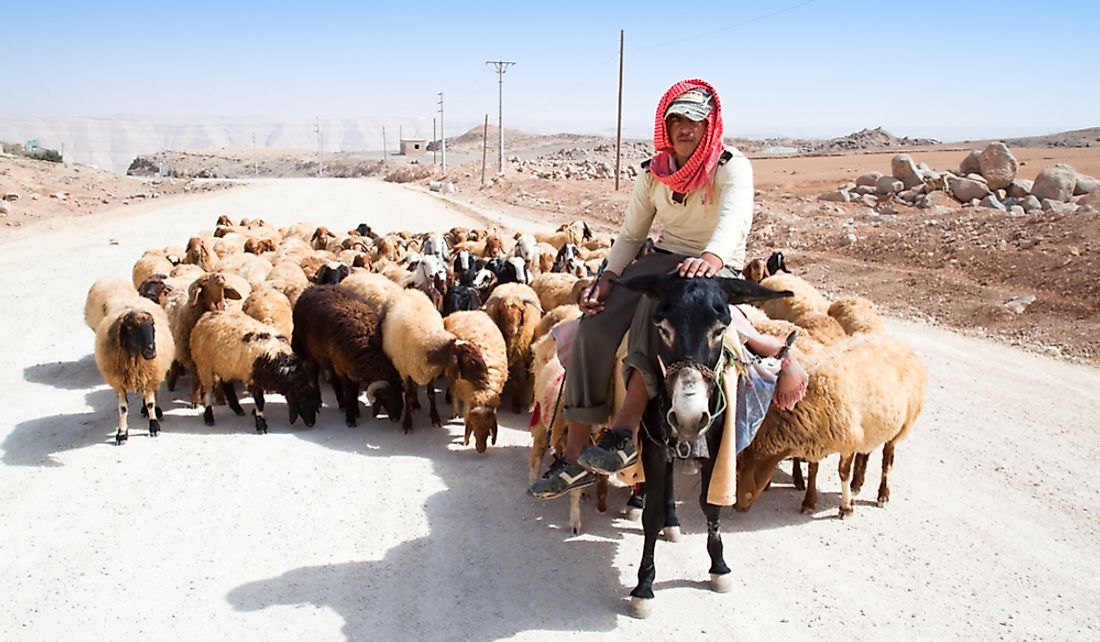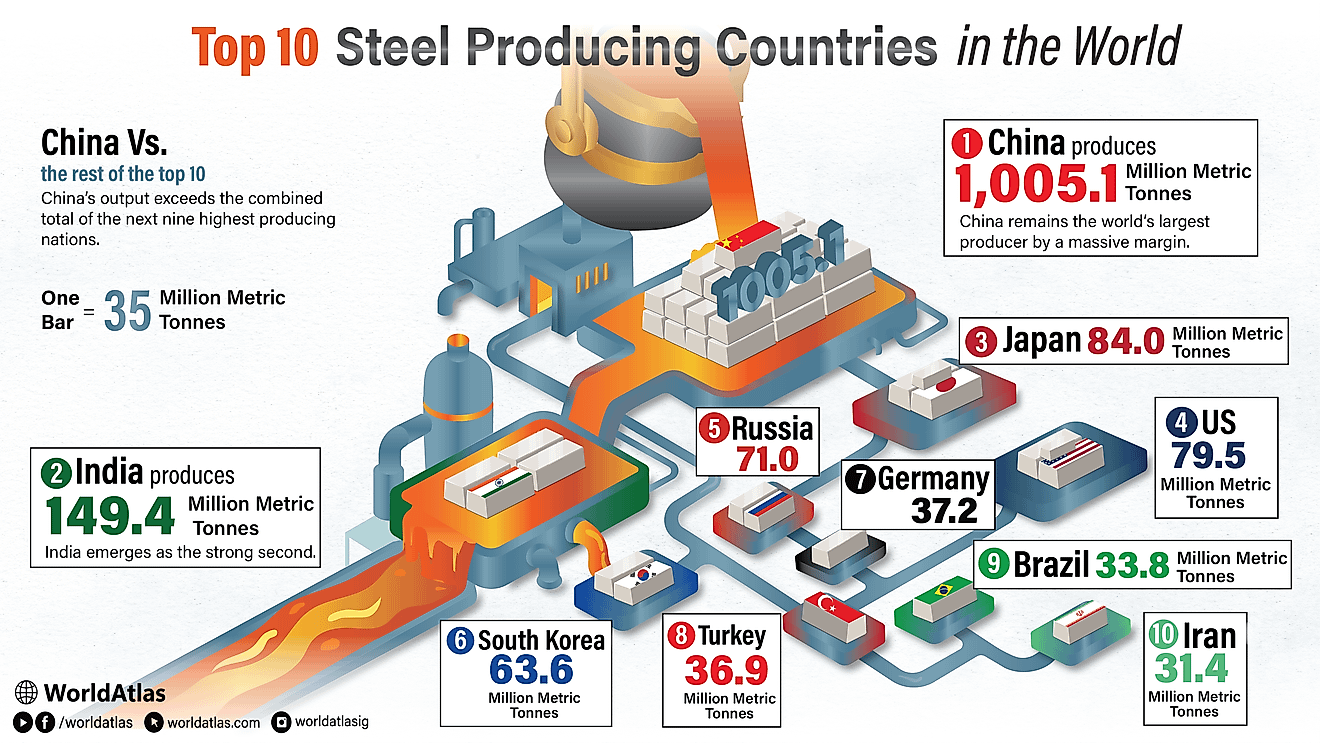What Are The Major Natural Resources Of Jordan?

Jordan is a nation found in one of the most strategic areas of the world at the crossroads of several major regions, Africa, Europe, and Asia. According to the World Bank in 2018, the Jordanian gross domestic product was estimated to be $41.87 billion which was the 92nd highest in the world while its per capita gross domestic product was the 95th highest in the world at $4,228. The Jordanian economy is considered to be one of the region's most well developed which can be attributed to several factors such as the country's wealth of natural resources, the government's ambitious policies as well as its strategic location. Some of Jordan's most important natural resources include arable land, minerals, and the country's beautiful scenery.
Jordan's Natural Resources
Arable Land
Data from the World Bank indicated that in 2015, approximately 11.9% of Jordan's land was considered arable. From 2004 to 2015, the size of arable land in Jordan fluctuated significantly, and it reached its lowest levels in 2007 when it accounted for only 10.9% of the country's land area. Arable land has been vital to the Jordanian people for much of their history as they relied on agriculture as one of their crucial economic activities. By the time Jordan became an independent nation, agriculture was one of the most important industries; however, its significance declined in later years. During the 1950s, the agricultural sector contributed roughly 40% of the country's gross domestic product, and in 2015 the industry contributed only 4% of the gross domestic product. The sector declined as an important contributor to the country’s national income because of several factors such as Jordan losing control of the west bank and the increasing importance of other sectors of the economy. Jordanian farmers grow a wide variety of crops such as wheat, tobacco, and barley. The Jordanian government estimated that in 1999, the country's farmers produced more than 12,000 tons of wheat as well as 5,000 tons of barley. The Jordanian government has implemented several policies to grow the country's agricultural sector with one of the main ones being the introduction of irrigation schemes such as the East Ghor Canal which covers a length of 48 miles. The Jordanian government has also encouraged the formation of cooperatives which have been vital in assisting the local farmers by providing loans and advice on modern farming practices.
Livestock
Jordanian farmers keep significant numbers of livestock and they are part of the most critical natural resources in the country. During the 1980s, Jordan had roughly 35,000 cattle and more than 1.5 million goats and sheep. The government adopted several measures to try and increase the number of animals in the country. At the time, the Jordanian livestock industry could only meet 33% of the local demand and the country was forced to import livestock from other nations. The major challenge that limited the growth of Jordan's livestock industry was the high price of imported feeds.
Oil Shale
Another primary natural resource in Jordan is oil shale. Geological evidence indicates that oil shale could be found in more than 70% of Jordan's territory and the country had more than 30 billion tons of oil shale. Jordan's most vital oil shale reserves were situated in the country's western region and they are situated close to the surface where infrastructure had been developed. The country’s oil shale was initially explored before the First World War; however, large scale exploration took place during the 1970s as a result of higher prices for oil shale and the development of new technology that made it easier to extract the oil shale. The government of Jordan signed several agreements with foreign corporations to allow them to extract the oil and convert it to energy. Some of the companies that undertook Jordan's oil shale exploration include Royal Dutch Shell and Petrobras. The government of Jordan planned to utilize its oil shale reserves for power generation to meet the country's energy requirements. The government of Jordan also signed an agreement with a local company in 2005 to allow the company to use the country's oil shale in the production of cement.
Minerals
Jordan has several minerals such as potash and phosphates which are vital to the country's economy. According to the Jordanian government, in 2003, the country produced roughly 2 million tons of potash which were mostly exported to other nations. In that year, Potash exports earned the country more than $192 million. In 2004, Jordan's Potash production declined slightly as the country only produced 1.9 million tons of potash. In 2004, Jordan's phosphate mines produced roughly 6.75 million tons of phosphates which were exported to other countries earning the country roughly $135 million. In 2005, the country's phosphate production decreased to 6.4 million tons; however, Jordan was ranked as the third largest producer of phosphate in the world.
Uranium
By 2015, Jordan had roughly 47,700 tons of uranium which are crucial to the country's economic development. The Jordanian government planned to use the country's significant uranium resources to generate nuclear power. The Jordanian government granted Areva Group S.A. the exclusive rights to utilize the country's uranium deposits in the country's central region. The agreement gives the company exclusive rights to exploit the uranium in the central region of the country for roughly 25 years. The Jordanian government also signed an agreement with Rio Tinto Alcan allowing the organization to search for uranium in the country.
The Jordanian Economy
From the 1970s to the 1990s, the Jordanian economy experienced both growth and decline. The most dramatic decline was experienced during the 1980s when the Jordanian economy shrank by roughly 30%. The introduction of liberal economic policies after King Abdullah became the country's monarch led to the growth of the country's economy. One of the most significant challenges which affected the Jordanian economy was the Arab Spring that led to the slowdown of the country's economic growth. Part of Jordan's economic growth is as a result of trading agreements it signed with countries such as the US and Canada.











